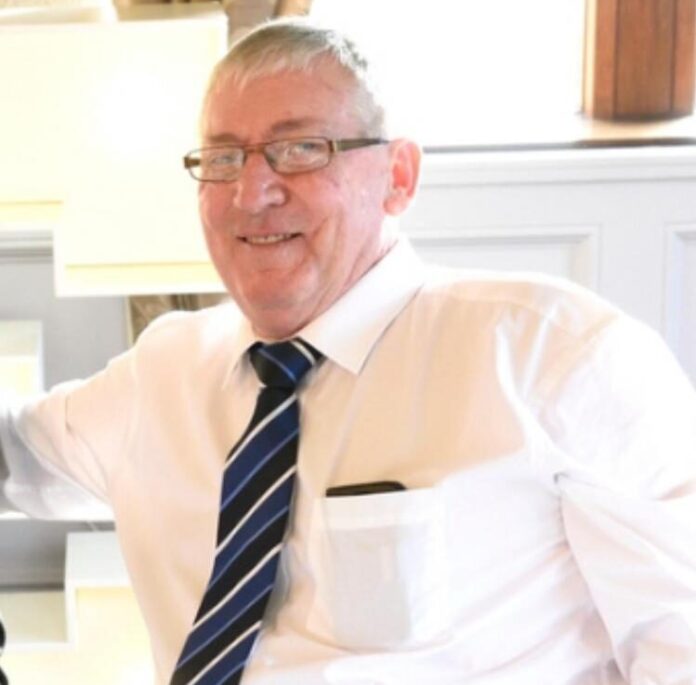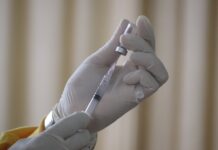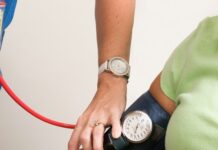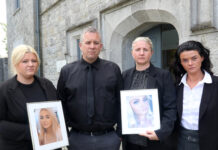THE daughter of a man found dead on the floor of an overcrowded emergency department at University Hospital Limerick (UHL) pleaded for improvements in how the hospital operates.
Martin Abbott (66), of Deilginis, Shannon, County Clare, and late of Roscrea, County Tipperary, is one of a growing number of patients who have died in tragic circumstances at a persistently overcrowded UHL.
The 66-year-old’s inquest heard how he had fallen from a trolley that he had been lying on for three days, he was found face down next to the trolley in a cubicle in the overwhelmed emergency department (ED).
Mr Abbott could not be ventilated by a doctor as rigor mortis had already set in, the inquest heard, and he may have been dead on the floor by his trolley for up to an hour.
Limerick Coroner John McNamara recorded a verdict of death by medical misadventure, warning that UHL “is in the news for all the wrong reasons” in respect of overcrowding.
A number of recent UHL patient deaths have been the subject of internal reviews. In one case, retired Chief Justice Frank Clarke is conducting an independent investigation into the circumstances surrounding the death of 16-year-old Aoife Johnston, who spent 12 hours on a trolley at the hospital dying of sepsis before she passed away.
Mr Abbott’s daughter, Ann Marie Abbott, told her father’s inquest that she wanted the circumstances of his death to act as an urgent catalyst for change in the health system.
The Shannon man’s sudden death prompted a full systems analysis review at UHL and an external report into Mr Abbott’s death, which delivered 26 recommendations in respect of overcrowding – of which all but two had been fulfilled.
“I just do not know how many more people have to die before the system changes,” Ms Abbott told the inquest.
“Nobody should go into a hospital to be diagnosed with a treatable condition and die in that hospital surrounded by nurses and doctors.
“I believe the improper monitoring of his symptoms, a failure to review him at timely intervals, the misrecording of vital data, and the fact that he was left unattended for such a long period of time when he should have been out of the accident and emergency unit and in a suitable ward were all contributors to my father’s death,” she said.
“Dad’s death should not be in vain, but serve as a catalyst for meaningful change and improvements in healthcare practices and management to ensure the wellbeing safety of all patients.”
Mr Abbott was admitted to UHL on December 14, 2019, and died three days later on December 17. Across these three days, hundreds of patients languished on trolleys waiting for a bed.
Mr Abbott was admitted with a complex medical history. He had his vital signs checked by a nurse at 3am, however he was found lying face down on the floor of the ED at 4.40am and pronounced dead at 4.55am.
He had presented at the hospital with pain, fever, and diarrhoea, and had previously received a kidney transplant. Due to steroid medication and anti-rejection medicines Mr Abbott had been on at the time, he was considered immunosuppressed and was placed on his own in a cubicle in the ED.
The inquest heard that the former taxi driver’s face and neck were rigid with rigor mortis.
UHL pathologist Dr Gabor Laskai said rigor mortis usually sets in around two hours after death, however it could occur more quickly due to a number of risk factors such as fever, severe shock, or sepsis.
The inquest heard it was possible that Mr Abbott could have been dead on the ED floor for more than an hour before he was found by nursing staff.
Ms Abbott told the inquest that she had been “uneasy, concerned, and worried” leaving her father at UHL on December 16, as she was afraid he was not being looked after correctly.
She said her family were initially told her late father had suffered a fracture to one of his vertebrae, it later emerged that a ligament surrounding his spine had been torn.
Senior counsel Luán Ó Braonáin told the hearing that the hospital acknowledged deficits in the care given to Mr Abbott.
A total of 26 recommendations in respect of UHL, many of which identified overcrowding in the hospital as a serious issue, were disclosed in an external report in respect of Mr Abbott’s death, of which all but two were acted upon.
According to Dr Laskai, Mr Abbott’s death was caused by acute heart failure against a background of pneumonia, severe arteriosclerosis, and hypoxia. Mr Abbott was receiving different antibiotics to treat a Legionella infection that had caused pneumonia in his lungs.
A record of the medicines administered to Mr Abbott could not be found, the inquest heard.
Dr Liam Casserly, a renal specialist who had treated Mr Abbott for a number of years and was not on duty on the night the Shannon man died, told the inquest that the loss of documents, such as patient medical notes, was not unusual in a busy and overcrowded emergency department.
Mr Abbott’s oxygen saturation levels had decreased from high 90 percentage to the mid 80s, which would have been a “red flag” on the night.
A staff assessment of Mr Abbott found he qualified for hourly blood checks, and while he should have been checked at 3am, he was checked at 4.40am and was found to be unresponsive.
“He was monitored but he could have been monitored more regularly,” Dr Casserly said.
“Escalation is the decision that should have been taken. A re-evaluation was warranted at that point. What should have been done was that they [the medical team] should have been contacted for a re-evaluation and a number of investigations, including a chest X-ray.”
The coroner, Mr McNamara, said Mr Abbott “should have been more frequently” and that his case should have been escalated after red flags were raised in respect of his prognosis.
Mr McNamara said he supported the 26 recommendations for the implementation of better care systems at UHL, which were highlighted in its external report, but said his verdict was not finding fault or blame with UHL.











